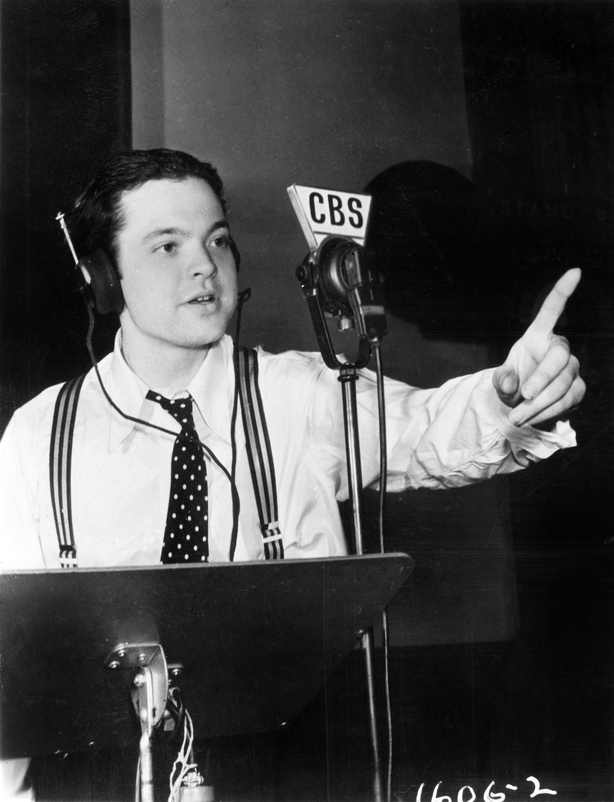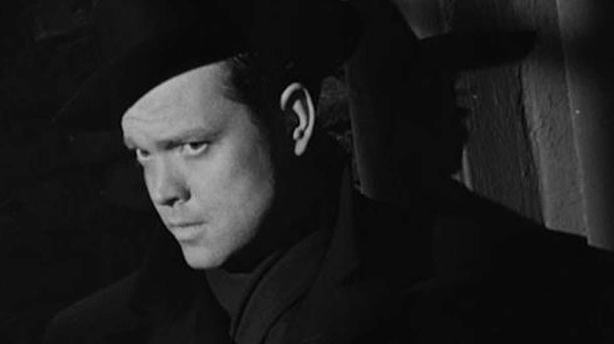The first time I travelled abroad alone was the summer of 1990. It was the fiftieth anniversary of the Battle of Britain. I was 19 and in London by myself.
I took a train out to the RAF Museum at Uxbridge to see the Spitfires and Hurricanes. I was now technically an adult, but somehow didn’t feel like one (arguably, I still don’t). Orson Welles, the future Mercury ‘Boy Wonder’, a title that was to haunt him for much of his life, was a mere 16 years old when he traveled to Ireland alone in the summer of 1932. Ostensibly on a painting holiday, but his father had recently died and he wanted to delay his pending entry to Harvard as long as he could. So, alone in a foreign country, sixteen years of age, he wandered the west of Ireland on a donkey and cart.
These facts blew my ten-year-old mind when my father first imparted them to me one day driving by the Gate Theatre in Dublin. For, sans donkey, The Gate was Orson’s ultimate destination. The stage was calling, with cinema soon to follow. Neither art forms would ever be the same again.

Though I remained fascinated by this boy’s biography, it was difficult to equate the daring travels of a ‘genius’ teenager with the big bloke smoking the cigar at the end of The Muppet Movie, as that was my only experience of an on-screen Orson Welles at that time. It wasn’t until a double-feature of Citizen Kane and The Third Man that same year as my own first travels did I really stand agape at his artistic achievements. And so began that night at the old Irish Film Centre a passion for the boy, the man and all his work.
Born a genius (according to his mother) in 1915 in Wisconsin, he was six when she died and he was then raised by an absent father and ultimately a guardian, Maurice Bernstein, whom Orson later named a pivotal character in Citizen Kane after. Sent to a progressive boarding school for boys in Woodstock, where he met his lifelong mentor, Roger Hill, an influential teacher and the first witness to the living Shakespeare dynamo that was to become the ‘boy wonder’. A few years later, the boy was radicalising the stage.
The day to day accounts by Simon Callow - in his multi-part biography of Welles - covering his creation of The
Mercury theatre company and the plays that followed are a must read. From a so-called all black ‘voodoo’ version of Macbeth, to a modern fascist take on Julius Caesar. All done while appearing on the radio every night as the voice of The Shadow. How on earth could he top that? How about convincing America that it was being invaded by Martians? Which he managed to do on Halloween in 1938 with his Mercury radio version of HG Wells' War Of The Worlds. Now, what could you possibly do for an encore? Let’ see, how about making the best movie ever? Yep, he did just that with Citizen Kane in 1941, aged just 26.
And then he was history. The end. At least as far as Hollywood was concerned. Kane was a hit with critics, but alas not with the public. Its underperformance at the box office, especially following all the genius publicity that preceded him, ultimately eroded his relationship with the studios. Still, he did manage to make some great pictures, such as The Magnificent Ambersons (disemboweled by the studio before release) and The Lady from Shanghai before the die was cast.

His turn as Harry Lime in Carol Reed’s The Third Man made him a household name in Europe. So Welles left America for Europe in 1949, mostly for tax reasons - his inability, or his unwillingness, to pay his bills was another aspect of his reputation that preceded him. Over the following decades, he scraped enough money together - mostly by making well-paid cameos in other director’s films - to direct a handful of his own films, including the wonderful Crimes At Midnight. Returning intermittently to the US (he managed to make the ground breaking Touch Of Evil there in 1958, only to see it re-cut and dumped into a double feature), he did not properly settle in America again until 1970.
Throughout the seventies, Welles became more famous than ever. He achieved this with a career as an erudite and funny TV talk show guest, combined with his constantly in demand presence on TV and radio commercials. It is arguably somewhat sad to see such a great artist having to shill himself as such. But this is Orson Welles we are talking about. In the process of his advertising career he created the greatest outtakes in the history of the medium: the first on radio, the second on TV:
Despite his centenary being a couple of years ago, this year is turning out to be one of huge celebration and significance. As his last and unreleased film, The Other Side Of The Wind, will finally see the light of a cinema projector. Well, probably. It was supposed to premiere at Cannes this year, but a dispute between Netflix (who paid for its completion, along with multiple donors, including myself) and the festival organisers resulted in it being pulled - it's now due to premiere at the Venice Film Festival in a couple of months. In the meantime, Mark Cousins has produced a wonderful documentary on yet another untouched facet of the boy wonder: his art. Painting and drawing through his entire life, Welles left behind thousands of artworks, oil paintings and sketches. In The Eyes Of Orson Welles, Cousins, using a faux dialog with the man himself, sets out to try to understand the great man exclusively through how he saw the world - and himself.
Orson was to die alone in 1985, aged 70, sitting at his typewriter, working on yet another unrealised project. I’m not sure he would’ve envisioned such a final curtain while dreamily wandering Ireland with his box of paints. As a young man, that age seemed awfully old to me. Now, as a middle-aged man, that seems awfully young. But the boy wonder has almost convinced me, it’s the journey, not the destination. And if you happen to make the greatest film ever made along the way, well, that’s on you.
The Eyes of Orson Welles is now on release at selected cinemas nationwide. Director Mark Cousins with be doing Q&As after the film at the Strand Film Centre, Belfast on August 21, the IFI, Dublin on August 22 and An Pálás, Galway on August 23 - check respective venues for details. The IFI is additionally hosting an Orson Welles season until Wednesday August 29 - more details here.


